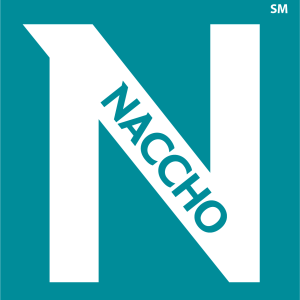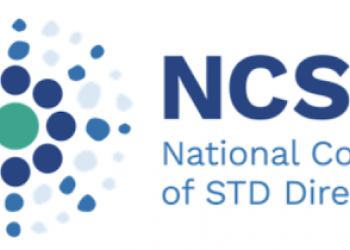From stigma to clinic closures, there are many reasons why individuals may be unable or unwilling to visit traditional HIV/STI testing facilities during and beyond the COVID-19 pandemic. Despite current and existing challenges, local health departments (LHDs) continue to work to find solutions so that all people have access to HIV/STI testing.
Self-testing allows individuals to conduct an HIV/STI test and find out their result within their own home or other private location. This strategy can help expand access to HIV/STI testing by providing an alternative for individuals who prefer not to visit traditional testing facilities. Additionally, this strategy can provide a solution for maintaining testing during times of clinic closures or public health crises. Currently, there are limited options available. There is only one FDA-approved HIV test kit for self-testing, and even fewer options are available for STI self-testing as only a small number of laboratories have validated extragenital STI tests or dried blood spot tests for self-collection. To better understand the landscape of HIV/STI self-testing at LHDs, NACCHO launched a brief survey to collect information about LHD approaches and challenges to implementing self-testing programs.
Survey results demonstrated a large gap in at-home testing capacity in local public health.
Thirty-five local health departments from 20 different states responded to NACCHO’s survey. Eleven of these LHDs are in jurisdictions prioritized in Phase I of the federal Ending the HIV Epidemic (EHE) initiative. The majority of LHDs (27) reported not having a self-testing program for HIV or STIs, and almost half of these LHDs had not considered pursuing such a program. Four LHDs reported that they are starting to develop self- testing programs, and four LHDs currently maintain self- HIV testing programs, but only two offer self-testing for STIs.
Local health departments understand the need to implement innovative testing strategies to reduce stigma and missed opportunities by ensuring that all individuals—not only the ones who visit their health departments—can know their status and access prevention and care.
Challenges and Barriers
Regardless of program status, lack of funding was identified as the most prohibitive barrier to implementing or expanding self- testing. LHDs describe many cost-related barriers to providing self-testing including an inability to purchase sufficient test kits, limited marketing and outreach capacity, and – in multiple cases – the required development of restrictive eligibility criteria. As explained by several respondents, there is a need for understanding of funding mechanisms to support at-home testing, including lab processing for HIV/STI testing and billing to 3rd parties.
Limited validation of STI test kits by public health laboratories was heavily cited as a challenge to offering or expanding STI self-testing. Several LHDs raised concerns about the reliability of self-collected tests, signifying a need for clinic and client-facing resources demonstrating efficacy considerations and guidelines for self-collection. Additionally, as noted by multiple LHDs, processes for linkage to care and surveillance are more complicated when adopting self-testing strategies. Due to the anonymous nature of HIV self-testing, data on positive cases is generally collected once individuals are linked to care, further increasing the importance of ensuring that proper education and pathways to care are available and accessible to those using self-testing options.
Many respondents described administrative roadblocks to implementation, including difficulty establishing ordering mechanisms, lack of staff time, and low organizational buy-in. Notably, the COVID-19 pandemic has both catalyzed and complicated the implementation of self-testing. Multiple LHDs indicated that the need to make screening available outside of their facility had intensified efforts to offer or expand their self-testing programs while simultaneously noting COVID-related difficulties such as staff re-assignments and outreach limitations.
What LHDs Need
While there is not a one-size-fits-all approach to self-testing programs, multiple facilitators for self-testing are apparent, such as dedicated and sustained funding for self-testing programs. LHDs noted that collaboration, partnerships, and organizational buy-in are vital in developing, and sustaining, self-testing programs. Multiple LHDs also indicated that flexibility in surveillance and follow-up protocols would allow for more people to access self-testing. Finally, there is broad interest in peer-to-peer learning among LHDs and access to best practices and protocols.
Local health departments understand the need to implement innovative testing strategies to reduce stigma and missed opportunities by ensuring that all individuals—not only the ones who visit their health departments—can know their status and access prevention and care. 1 in 7 people living with HIV in the United States are unaware of their status. Recognizing that 40% of new HIV transmissions are linked to individuals who did not know they had HIV, it is critical to scale-up and expand HIV testing efforts. Additionally, many of the estimated 20 million cases of STIs every year are undiagnosed and, consequently, untreated, which can lead to serious long-term health consequences and facilitate transmission of HIV.
Easing the burden of accessing testing through self-testing options can help decrease the number of individuals who do not know their HIV/STI status while also helping to reduce the stigma around testing and treatment. Self-testing can be a valuable part of LHDs’ strategy to expand and maintain access to HIV and STI testing. To implement innovative HIV and STI testing strategies, reduce transmission and ultimately improve health outcomes for all individuals, it is essential that LHDs have dedicated resources, guidance and support.
______________________________________
For more information about implementing a self-testing program at your local health department, please visit the below resources:
TakeMeHome: HIV Self-Testing Program for Local and State Health Departments
Dear Colleague: CDC HIV Self Testing Guidance
HIV.gov Blog: HIV Self-Testing Programs to Improve Testing Uptake and Increase Diagnoses




